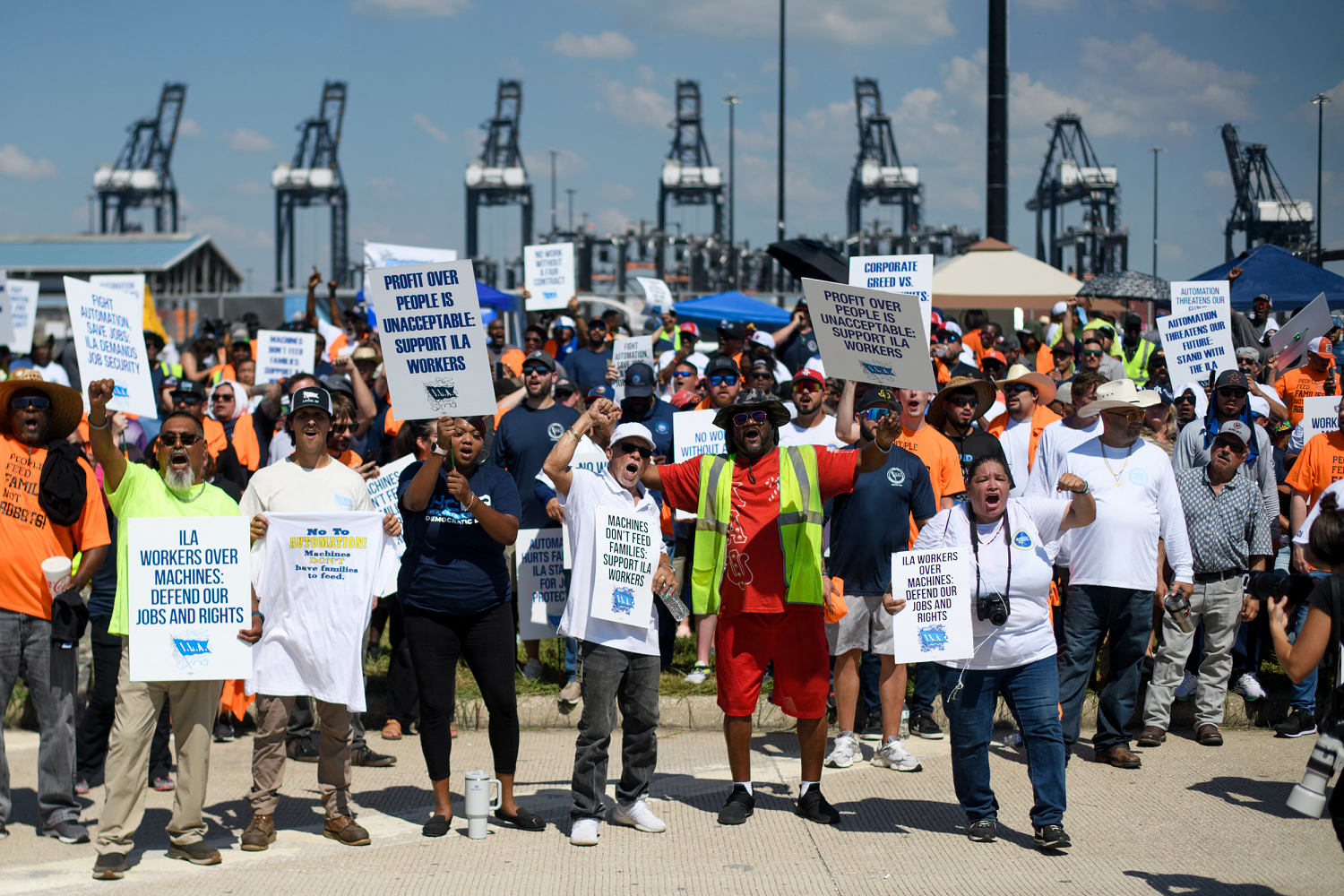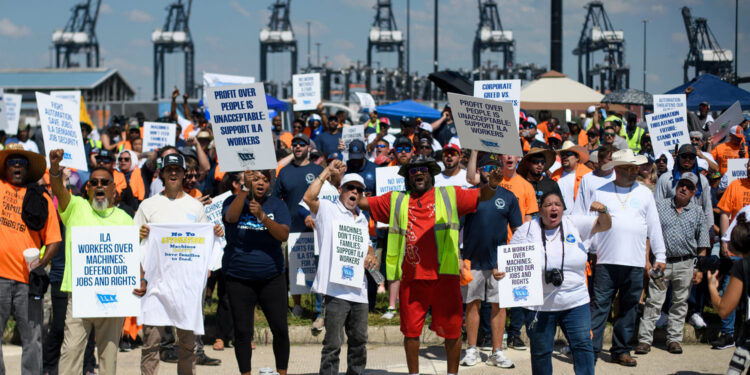
The AFBF said feedstocks that go into other food products, including soybeans, cocoa beans and sugar cane, could also be affected, but consumers aren’t likely to feel a hit from these immediately. Furniture and other manufactured goods, especially machinery like farm equipment, vehicles and auto parts, could also be disrupted, the lobbying group said.
Most daily essentials like toilet paper, paper towels and toothpaste, by contrast, typically are either made domestically or come through Canada, Mexico or West Coast ports that aren’t affected by the strike, experts say.
“There’s no reason for people to go out and do like we did during Covid and hoard,” Ellen said.
There’s no reason for people to go out and do like we did during Covid and hoard.
Andy Ellen, President of the North Carolina Retail Merchants Association
But pandemic-era panic-buying remains a vivid memory, said Joseph Agresta, who directs the supply chain analytics graduate program at Rutgers Business School. And already rumors of looming shortages of essential items have been spreading on social media, leading to reports of panic-buying in some areas — an impulse Agresta called an “overreaction.”
Social media users have been turning to each other for advice — trading unconfirmed reports of long lines and shortages, messages to tamp down excessive concerns or a mixture of both. On TikTok, @tammytheblackprepper told her followers to “save something for others.” X user @ninadelaflores posted that “panic-buying supplies in bulk because you fear a shortage causes more shortages.”
Agresta echoed calls for caution. “There’s no reason to panic,” he said, adding that many companies and freight operators have spent months preparing for the strike. Major retailers have already built up their stocks ahead of the holiday season.
Walmart, for example, has assured customers that it’s well positioned to keep operations running smoothly. “We prepare for unforeseen disruptions in our supply chain and maintain additional sources of supply to ensure we have key products available for our customers when and how they want them,” the company said in a statement this week.
Late last month, Costco executives also indicated they were ready. “Our buyers are all over it,” said CEO Ron Vachris on the company’s latest earnings call. “They’re watching it closely and we’ve taken as many pre-emptive measures as we could to prepare for this.”
Alternative shipping methods exist for essential goods, like pharmaceuticals, which are often shipped by air. Agresta advised consumers to consider similar products and local options if shortages arise for perishable goods, including produce.







